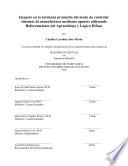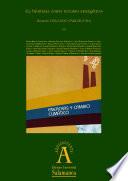Impacto En La Tardanza Promedio Del Modo De Controlar Sistemas De Manufactura Mediante Agentes Utilizando Reforzamiento Del Aprendizaje Y Logica Difusa
Resumen del Libro:

In this investigation it is compared two algorithms in the dispatching rule selection in a system of three machines. The first algorithm has an agent that controls the decision-making of a system of three machines. The second algorithm use an agent for each machine, in this case three, which controls only the dispatching rule selection on the machinery it belong. The algorithms select the parts to be processed through the dynamic selection of the optimal dispatching policy by the use of Reinforcement Learning (RL) and Fuzzy Inference Systems (FIS). The agents learn to make decisions throughout the time by trial-error, receiving rewards or penalties depending on the impact observed in the objective of the system, which is to reduce the performance measure mean tardiness. On each machinery it is evaluated the actual state and it is recommended a dispatching rule to be used in the selection of the parts that waits in the queue. The algorithm receives the state of the system, it transforms the values of the input variables to fuzzy values, to evaluate them through the fuzzy base rules. Finally, the algorithm decides the dispatching rule to use. According to the observed impact in the mean tardiness, the agent rewards or penalizes the taken action. To evaluate if there exist differences between the used algorithms, it was used simulation. The system were modeled in Arena and there were performed experimental runs for each system and it was concluded that for the system in study and the simulation time used, to control a manufacturing system by one agent presents mean tardiness lower than to control them by three agents.
Autores del Libro:
Formatos Disponibles: PDF / EPUB
Opciones de descarga:
Para conseguir una copia de este libro puedes usar alguna de las siguientes opciones de descarga:








Comenta esta nota!